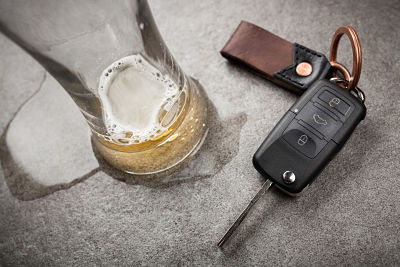When a police officer has probable cause to believe that drunk driving has occurred, the officer may ask the suspect to consent to a blood-alcohol test. If the suspect denies their consent, a judge or magistrate must issue a search warrant before the test can proceed.
Once a blood test is authorized, Texas law states that only certain licensed professionals may actually perform the blood draw on the suspect. The list of qualified individuals includes physicians, registered nurses, and certified emergency medical technicians. The law further specifies the actual blood draw must occur in a “sanitary place.”
Appeals Court: Defense Failed to Produce Any Evidence Nurse Was Not Qualified to Draw Blood Sample
If the suspect has reason to believe that a non-qualified person has performed their blood draw, the burden is on them–not the prosecution–to prove it at trial. A recent decision from the Texas Ninth District Court of Appeals, Duran v. State, helps to illustrate this point. This case began when a driver approached a highway trooper stationed at an exit on Highway 59. The driver told the trooper that he had just observed a truck weaving across multiple lanes of traffic before leaving the highway and jumping a curb.
The trooper located the truck and initiated a traffic stop. The trooper said he observed that the truck’s driver–the defendant–was “unsteady on his feet” when exiting the vehicle. The defendant admitted to taking medication that day. The trooper proceeded to administer a series of field sobriety tests, the results of which indicated the defendant was legally intoxicated.
The trooper placed the defendant under arrest. The defendant agreed to a blood test. The trooper took the defendant to a local hospital. The trooper asked a nurse at the hospital to conduct the actual blood draw. The sample was then sent to the Department of Public Safety’s crime lab for analysis.

At trial, a crime lab analyst testified as to the results: The defendant had three separate drugs in his system at the time of his arrest. Based on this and other evidence, the jury found the defendant guilty of misdemeanor DWI. On appeal, the defendant argued the trial judge should have suppressed the results of the drug testing because the prosecution failed to demonstrate it complied with the law when taking the initial blood draw.
Specifically, the defendant argued the prosecution failed to establish that the nurse who drew his blood was actually licensed and qualified to do so. Additionally, the state never established the blood draw was taken in a “sanitary place.” The Court of Appeals rejected both arguments and affirmed the defendant’s conviction. It noted the burden was on the defense to produce “some evidence” that either the nurse was not qualified or that the blood sample was not drawn in a sanitary place. Since he never produced such evidence, the prosecution was not required to do anything.
Speak with a Houston DWI Defense Lawyer Today
Drunk driving cases often turn on the results of blood or breath tests. So it is critical to ensure that these tests are conducted in full compliance with all constitutional and statutory requirements. An experienced criminal defense attorney can help you in challenging the results of any test that does not follow these requirements. So if you have been arrested on DWI charges and need legal representation, contact the Law Offices of Tad Nelson & Associates in Galveston, League City or Houston today.